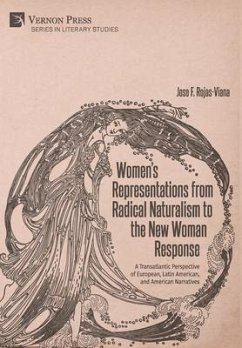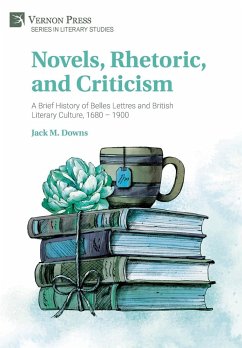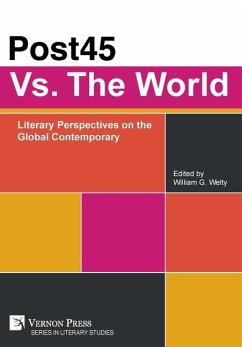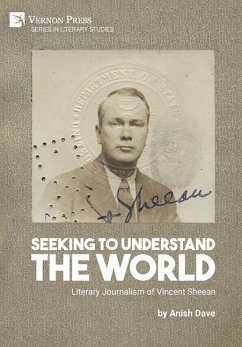
War, Espionage, and Masculinity in British Fiction
Versandkostenfrei!
Versandfertig in 2-4 Wochen
105,99 €
inkl. MwSt.

PAYBACK Punkte
53 °P sammeln!
'War, Espionage, and Masculinity in British Fiction' explores the masculinities represented in British works spanning more than a century. Studies of Rudyard Kipling's 'The Light That Failed' (1891) and Erskine Childer's 'The Riddle of the Sands' (1903) investigate masculinities from before World War I, at the height of the British Empire. A discussion of R.C. Sherriff's play 'Journey's End' takes readers to the battlefields of World War I, where duty and the harsh realities of modern warfare require men to perform, perhaps to die, perhaps to be unmanned by shellshock. From there we see how Do...
'War, Espionage, and Masculinity in British Fiction' explores the masculinities represented in British works spanning more than a century. Studies of Rudyard Kipling's 'The Light That Failed' (1891) and Erskine Childer's 'The Riddle of the Sands' (1903) investigate masculinities from before World War I, at the height of the British Empire. A discussion of R.C. Sherriff's play 'Journey's End' takes readers to the battlefields of World War I, where duty and the harsh realities of modern warfare require men to perform, perhaps to die, perhaps to be unmanned by shellshock. From there we see how Dorothy Sayers developed the character of Peter Wimsey as a model of masculinity, both strong and successful despite his own shellshock in the years between the world wars. Graham Greene's The Heart of the Matter (1948) and The Quiet American (1955) show masculinities shaken and questioning their roles and their country's after neither world war ended all wars and the Empire rapidly lost ground. Two chapters on 'The Innocent' (1990), Ian McEwan's fictional account of a real collaboration between Great Britain and the United States to build a tunnel that would allow them to spy on the Soviet Union, dig deeply into the 1950's Cold War to examine the fictional masculinity of the British protagonist and the real world and fictional masculinities projected by the countries involved. Explorations of Ian Fleming's 'Casino Royale' (1953) and 'The Living Daylights' (1962) continue the Cold War theme. Discussion of the latter film shows a confident, infallible masculinity, optimistic at the prospect of glasnost and the potential end of Cold War hostilities. John le Carré's 'The Night Manager' (1993) and its television adaptation take espionage past the Cold War. The final chapter on Ian McEwan's 'Saturday' (2005) shows one man's reaction to 9/11.












